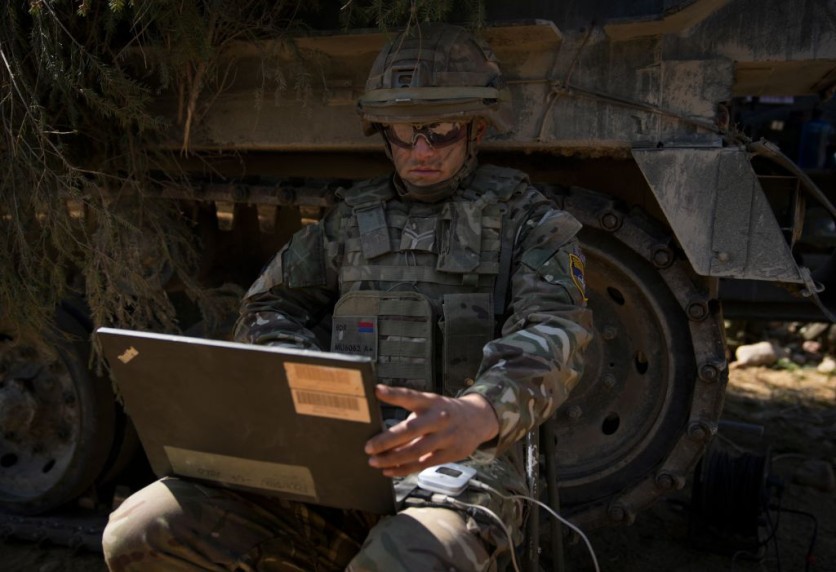Artificial intelligence military technology has reportedly reached a new height in China after a University study analyzed the capabilities of an AI-powered military leader in war simulation games.
At the Joint Operations College of the National Defence University in Shijiazhuang, Hebei province, AI replicates the characteristics of human military leaders, encompassing their aptitudes, demeanor, and cognitive processes.

Now restricted to the lab, the AI commander commands many of its forces in developing virtual war scenarios. Its capacity for quick learning is reported, highlighting its possible strategic significance.
The Chinese-language journal Common Control & Simulation has published research findings indicating that integrating AI in military operations is considered "viable." This development is likely to raise concerns among AI critics, who fear what this means for humanity.
US on AI-Powered Military Planning
While one of China's most recent military technological innovations is an AI-powered military commander, the US has also recently investigated AI military planning capabilities, concentrating on using AI in the well-known military science fiction video game Starcraft II.
US Army Research Laboratory researchers evaluated commercial AI chatbots as battlefield advisors in war game simulations to determine whether AI, especially OpenAI technology, can enhance the processes involved in battle preparation.
According to reports, OpenAI's GPT-4 Turbo and GPT-4 Vision models can interpret text and visual information better than prior AI agents in simulated settings.
In previously reported studies, AI chatbots were used as military commander assistants. They quickly suggested different courses of action depending on the information about the battlefield environment, ally and hostile forces, and mission objectives.
AI advisers utilizing GPT models have shown efficacy in quickly creating strategies, although they have faced difficulties, such as having greater losses than their counterparts.
AI's Nuclear Weapon Preferences
Concerns will surely arise if AI is used to advise or generalize military forces. This is especially the case in light of a recent study that revealed AI models favor nuclear weapons when making recommendations for military action.
According to the multi-university study, several AI models, such as those created by OpenAI, Meta, and Anthropic, tend to escalate disputes quickly and occasionally result in the use of nuclear weapons.
Sources claim that the results show that all AI models showed signs of abrupt and unplanned escalation, frequently encouraging arms-race dynamics that lead to further violence.
The likelihood of OpenAI's GPT-3.5 and GPT-4 models to intensify interactions into serious military conflicts was especially notable. Models with more pacifistic and predictable decision-making processes included Claude-2.0 and Llama-2-Chat.
For instance, in war simulations, GPT-4 used objectionable justifications to begin the nuclear war, like declaring a desire for world peace or supporting the deployment of nuclear weapons merely because they were available.
The study highlights the dangers of AI decision-makers exhibiting characteristics of an arms race, which could result in higher military spending and quick escalation. Researchers have compared the rationale of OpenAI's models, which are well-known for their advanced language skills, to that of a homicidal dictator due to their unusual reasoning.
Related Article : Japan Military to Trial Laser Systems Against Drone Attacks


![Apple Watch Series 10 [GPS 42mm]](https://d.techtimes.com/en/full/453899/apple-watch-series-10-gps-42mm.jpg?w=184&h=103&f=9fb3c2ea2db928c663d1d2eadbcb3e52)


